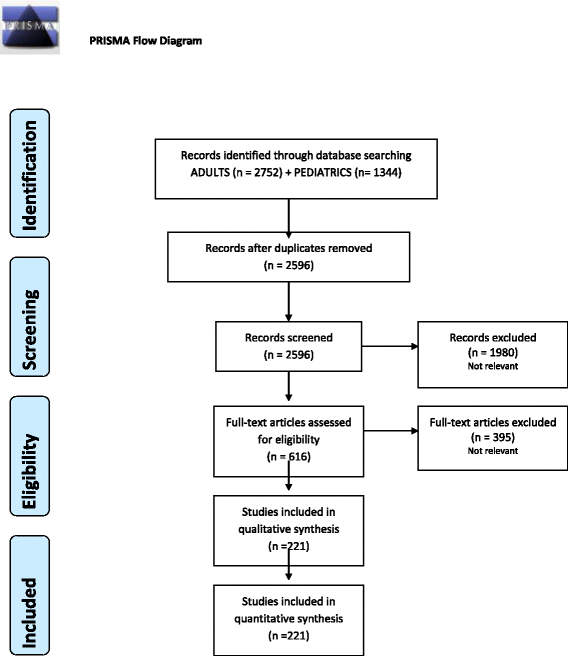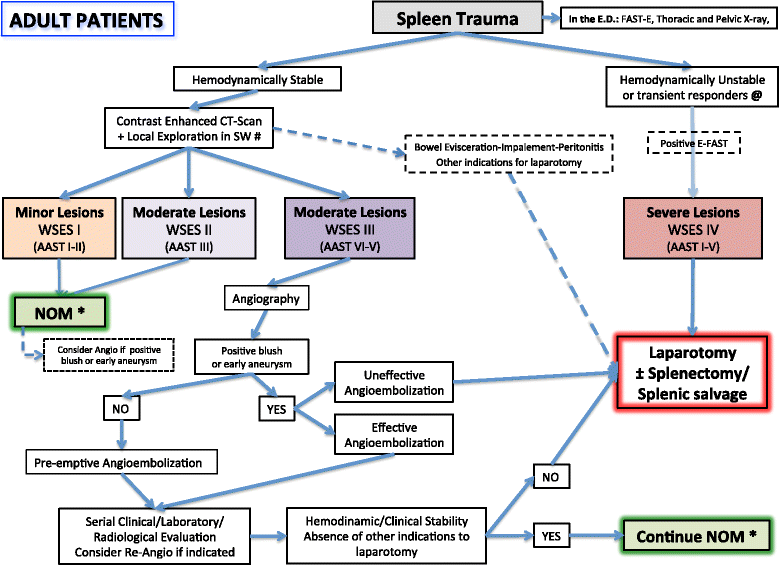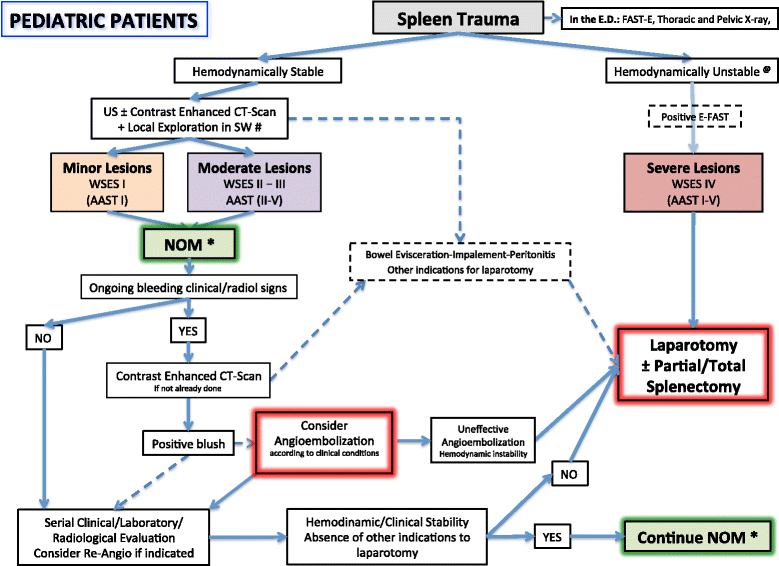Splenic trauma: WSES classification and guidelines for adult and pediatric patients
- PMID: 28828034
- PMCID: PMC5562999
- DOI: 10.1186/s13017-017-0151-4
Splenic trauma: WSES classification and guidelines for adult and pediatric patients
Abstract
Spleen injuries are among the most frequent trauma-related injuries. At present, they are classified according to the anatomy of the injury. The optimal treatment strategy, however, should keep into consideration the hemodynamic status, the anatomic derangement, and the associated injuries. The management of splenic trauma patients aims to restore the homeostasis and the normal physiopathology especially considering the modern tools for bleeding management. Thus, the management of splenic trauma should be ultimately multidisciplinary and based on the physiology of the patient, the anatomy of the injury, and the associated lesions. Lastly, as the management of adults and children must be different, children should always be treated in dedicated pediatric trauma centers. In fact, the vast majority of pediatric patients with blunt splenic trauma can be managed non-operatively. This paper presents the World Society of Emergency Surgery (WSES) classification of splenic trauma and the management guidelines.
Keywords: Adult; Classification; Conservative; Embolization; Guidelines; Non-operative; Pediatric; Spleen; Surgery; Trauma.
Conflict of interest statement
Ethics approval and consent to participate
Not applicable.
Consent for publication
Not applicable.
Competing interests
The authors declare that they have no competing interests.
Publisher’s Note
Springer Nature remains neutral with regard to jurisdictional claims in published maps and institutional affiliations.
Figures



References
-
- Oxford Centre for Evidence-based Medicine - Levels of Evidence (March 2009) - CEBM. Available from: http://www.cebm.net/oxford-centre-evidence-based-medicine-levels-evidenc...
-
- Mutschler M, Nienaber U, Brockamp T, Wafaisade A, Fabian T, Paffrath T, et al. Renaissance of base deficit for the initial assessment of trauma patients: a base deficit-based classification for hypovolemic shock developed on data from 16,305 patients derived from the TraumaRegister DGU®. Crit Care. 2013;17:R42. doi: 10.1186/cc12555. - DOI - PMC - PubMed
-
- American College of Surgeon’s Commitee on Trauma. Advanced Trauma Life Support® (ATLS®) Student manual 9th ed.ed., American College of Surgeon, Chicago; 2012.
Publication types
MeSH terms
LinkOut - more resources
Full Text Sources
Other Literature Sources
Medical

